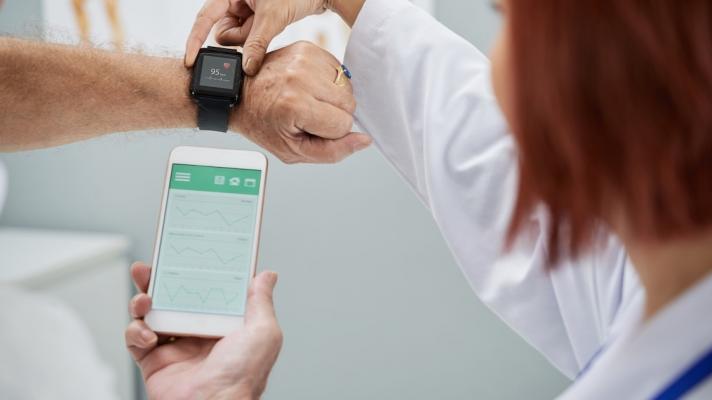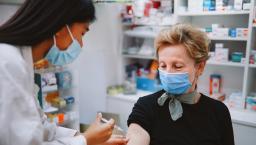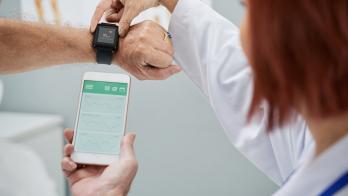
Photo:Cavan Images/Getty Image
Direct-to-consumer virtual care company Hims & Hers is receiving backlash to its 60-second commercial dubbed "Sick of the System" that ran during the Super Bowl on Fox.
The ad states that "obesity is America's deadliest epidemic" and claims that "something is broken, and it's not our bodies; it's the system." It then says the $160 billion weight loss industry "feeds on our failure."
It says there are medications that work that are "priced for profits," and the system "wasn't built to help us" but to "keep us sick and stuck."
The commercial then presents Hims & Hers as a solution, stating that the company "offers life-changing weight loss medications that are affordable and doctor-trusted." The ad originally debuted on YouTube at the end of January.
Hims & Hers offers a compounded semaglutide, which the company's website says is "a once-a-week prescription injection. Compounded GLP-1 injections available through Hims contain the same active ingredient as Ozempic and Wegovy."
The FDA has released concerns over unapproved versions of GLP-1 drugs, such as compounded semaglutides, as an option for weight loss.
In February, Senators Dick Durbin, D-Ill., and Roger Marshall, R-Kan, sent a letter to the FDA's acting Commissioner Dr. Sarah Brenner expressing concerns that the Super Bowl ad risks misleading patients by promoting a specific type of weight loss medication while omitting safety or side effect information.
"An upcoming Super Bowl advertisement, which has been publicly posted online, appears to showcase a company's ability to prescribe and dispense GLP-1 medications to patients, including with text and claims about weight loss drugs, and imagery of an injection pen with distinctive characteristics reflective of an existing brand-name medication," the senators' wrote.
"However, nowhere in this promotion is there any side effect disclosure, risk or safety information as would be typically required in a pharmaceutical advertisement. By comparison, the FDA-approved labels and advertisements for brand-name GLP-1 medications include significant risk disclosures to patients about side effects and contraindications, including warnings about potential gallbladder, pancreas, vomiting, diarrhea, and other implications. Further, for only three seconds during the minute-long commercial does the screen flash in small, barely legible font that these products are not FDA-approved."
The senators acknowledged the important roles of pharmaceutical compounding and telehealth but said there should be no disparity in pharmaceutical advertising requirements between regulated entities.
"We plan to soon introduce bipartisan legislation to close this gap, so that patients are not deceived by advertisements that glaringly omit critical safety and side effect information," the senators wrote. "We believe FDA may already have the authority to take enforcement action against marketing that may mislead patients about this company's products."
Two days before the senators' letter, the Partnership for Safe Medicines, a coalition of 45 non-profit organizations focused on prescription drug safety, sent a separate letter to Dr. Catherine Gray, director of the FDA's Office of Prescription Drug Promotion.
"As a knock-off copy of a prescription drug, the commercial for this product should comply with FDA prescription drug ad rules," the Partnership's letter said.
"Already, public health experts have called the commercial 'incredibly irresponsible.' We agree. The commercial is blatantly misleading and poses a substantial risk of harming the approximately 200 million consumers that will see the commercial during Super Bowl LIX."
In response to the backlash, a Hims & Hers representative defended the company's approach in a statement to MobiHealthNews.
"We take safety, quality, and transparency steps for every customer on our platform. That includes making Certificates of Analysis – a report card on quality standards for USP benchmarks – available to every GLP-1 customer so they know the exact ingredients from FDA-regulated suppliers that are in the medications they receive. By offering access to personalized treatments, we're able to help customers feel healthier, better manage side effects, and stay on treatment up to 3 times longer than the industry standard," the representative stated.




















